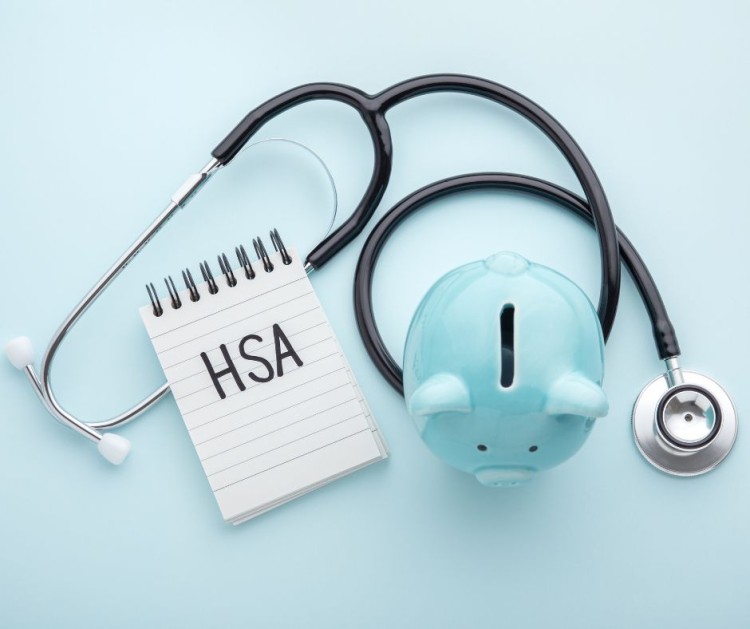Health Savings Accounts: One Way Some Consumers Can Prepare for Medical Bills
| Posted in Bank Blogs
You know about tax-preferred IRAs for your retirement savings, but what about a similar account to help pay for certain medical expenses? It's called a Health Savings Account (HSA). Whether you already have an HSA or you're interested in learning more, here are some basic points.
If you are enrolled in only one health insurance plan and it has a high deductible, you probably are eligible to open an HSA. The deductible is the dollar amount you have to pay before the insurance starts picking up certain costs. An individual, in calendar year 2019, whose health plan has a deductible of at least $1,350, qualifies for an HSA. For a family, the minimum deductible is $2,700.
Your employer may offer a high-deductible health insurance plan that makes you eligible to have an HSA. "You may also purchase a high-deductible policy on your own," explained Evelyn Manley, an FDIC Senior Consumer Affairs Specialist. "Once you have this insurance coverage, check to see if a health savings account is automatically opened for you by the insurer. If not, you can open one with a bank or other financial institution that offers HSAs."
Consider the benefits (in addition to helping with medical expenses) as well as the limitations. You can save money that can help you avoid a shock to your finances from a sudden large medical bill. And, money can accumulate in the account from year to year; unlike with many "flexible spending accounts," you do not lose the money at the end of the year.
Another plus is the potential to claim a tax deduction for your contributions to the account, which in 2019 may not be more than $3,500 for an individual with self-only coverage, and $7,000 for a family. And, you don't pay tax on the interest or other earnings when the funds are spent on qualified medical costs.
But remember that funds from the account that are used for ineligible medical expenses — including drugs not needing a prescription (such as aspirin), nutritional supplements not prescribed to treat a medical condition, or unnecessary cosmetic surgery — will be taxed and may be subject to a significant tax penalty.
Find the HSA that is the best deal for you. "Consumers should review account disclosures for fee information, the interest rate expressed as the Annual Percentage Yield, and other important terms and conditions," advised Denise Waters, an FDIC Consumer Affairs Specialist. Also consider how convenient it will be to add to your account and make payments. If you're considering moving an existing HSA to another bank, first check with your health insurance company to make sure it will permit the switch.
Understand your deposit insurance coverage. First, make sure you know the name of the bank where the funds will be held. This may require you to contact your insurer if it arranged for you to get the HSA and you do not remember receiving the information. As for your FDIC deposit insurance coverage, if you have not listed beneficiaries, your HSA is insured as a single account and, together with any other single accounts you own at the same bank, is eligible for up to $250,000 in coverage if the institution fails. An HSA that does name beneficiaries is insured together with any other "revocable trust accounts" (i.e., deposits with beneficiaries) for up to $250,000 per beneficiary. For more information, call 1-877-ASK-FDIC.
Be aware of any investment risks. Your HSA provider may allow you to transfer some of your savings from an FDIC-insured deposit to a non-deposit investment product, such as one or more mutual funds. "Before considering whether to invest some of your HSA money in the market, consider whether you have enough in your FDIC-insured account to cover unplanned medical expenses that you may be responsible for over, say, the next year, in case they occur when the investments have lost value," advised Luke W. Reynolds, Chief of the FDIC's Outreach and Program Development Section.
Regularly monitor your account activity. Review statements immediately after they are issued because that is the key to limiting your losses in the event of fraud or an error. Also know that some HSAs may require you to either review your statement online or pay an additional fee to receive paper statements in the mail.
Be careful if a debit card is provided for you to access your HSA. "Until you expect to use that debit card for a medical expense, consider keeping it at home in a safe place and separate from other debit and credit cards you have," Reynolds suggested. "You want to avoid the risk of using it for non-medical purchases and inadvertently incurring a tax penalty. You also may want to tape a note to the front of the card as a reminder that it must not be used for everyday expenses."
- FDIC Consumer News
Open an HSA with us today!
